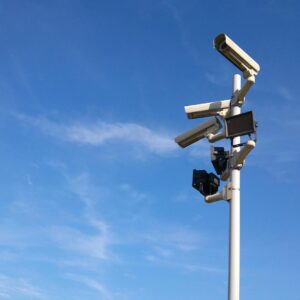This article may contain references to products or services from one or more of our advertisers or partners. We may receive compensation when you click on links to those products or services. Nonetheless, our opinions are our own.
The information presented in this article is accurate to the best of our knowledge at the time of publication. However, information is subject to change, and no guarantees are made about the continued accuracy or completeness of this content after its publication date.
- How to Refine a Personal Budget as Financial Needs Evolve
- Reviewing the Current Financial Landscape
- Responding to Life Transitions and Shifting Financial Demands
- Refining Budget Categories for Greater Flexibility
- Setting Financial Goals and Strengthening Saving Strategies
- Using Technology for Improved Budget Tracking
- Staying Consistent While Remaining Flexible
- Frequently Asked Questions
- Recommended Reads
How to Refine a Personal Budget as Financial Needs Evolve
Financial priorities shift over time, whether due to career growth, relocation, starting a family, or preparing for retirement. A budget that once served well can become misaligned with current realities. Adjusting spending and savings habits as life progresses is necessary for maintaining financial well-being.
This presents thoughtful methods for reevaluating and modifying a personal budget in response to life changes. With strategic adjustments and conscious tracking, financial stability can remain within reach, even as needs and responsibilities grow.
Reviewing the Current Financial Landscape
Before making changes, it’s important to gain a clear view of where money is coming from and where it’s going. Accurate insight into income, expenses, and savings patterns forms the basis for meaningful improvements.
Steps to Clarify Financial Standing
- Track all sources of income, including employment, freelance work, and passive earnings
- Organize expenses into fixed categories (e.g., rent, insurance) and variable categories (e.g., groceries, entertainment)
- Identify recurring discretionary spending that may be reduced or reallocated
- Evaluate current savings balances, including emergency funds and investments
Sample Budget Breakdown
| Category | Monthly Amount |
|---|---|
| Income | $3,500 |
| Fixed Expenses | $1,200 |
| Variable Expenses | $800 |
| Savings | $500 |
| Discretionary Spending | $1,000 |
By laying out this information clearly, it becomes easier to identify areas where adjustments may be beneficial.
Responding to Life Transitions and Shifting Financial Demands
When circumstances change, expenses often follow. A job promotion might raise income while also increasing commuting or childcare costs. Similarly, moving cities or entering new life stages alters financial priorities.
Identifying Changes That Impact the Budget
- Has income increased or decreased recently?
- Are there new financial responsibilities, such as dependents or rising housing costs?
- Are long-term goals shifting, such as saving for higher education or paying off debt sooner?
Comparison of Past and Current Expenses
| Category | Previous Monthly Amount | Current Monthly Amount |
|---|---|---|
| Housing | $1,200 | $1,500 |
| Groceries | $400 | $500 |
| Transportation | $250 | $300 |
Recognizing these changes early allows for proactive responses.
Voted "Best Overall Budgeting App" by Forbes and WSJ
Monarch Money helps you budget, track spending, set goals, and plan your financial future—all in one app.
Get 50% OFF your first year with code MONARCHVIP
Refining Budget Categories for Greater Flexibility
Budgets benefit from flexibility, adjusting them allows for smoother transitions and fewer financial shocks. Allocations may need to be rebalanced as priorities evolve.
Areas to Reevaluate
- Fixed expenses may increase, especially housing and healthcare
- Variable costs may fluctuate, such as groceries or utilities
- Savings targets should reflect updated goals and timelines
- Discretionary categories may offer space for cutbacks when needed
Revised Budget Allocation Example
| Category | Previous Allocation | Adjusted Allocation |
|---|---|---|
| Essentials | $1,200 | $1,100 |
| Discretionary | $500 | $300 |
| Savings | $700 | $900 |
Shifting funds toward savings can be a wise decision if future expenses are anticipated or new goals have been set.
Setting Financial Goals and Strengthening Saving Strategies

As life circumstances shift, so should short-term and long-term savings plans. Whether preparing for major purchases or long-range retirement, financial goals should guide how funds are allocated.
Refining Goals with Clear Timelines
- Build or increase an emergency fund to cover at least three to six months of expenses
- Set specific, realistic savings goals for upcoming needs
- Reassess investment strategies to ensure alignment with risk tolerance and timeline
Goal Planning Snapshot
| Financial Goal | Target Amount | Timeline |
|---|---|---|
| Emergency Fund | $10,000 | 1 Year |
| Home Down Payment | $50,000 | 5 Years |
| Retirement Savings | $500,000 | 30 Years |
Clearly defined goals offer structure and motivation, making financial planning more focused and achievable.
Using Technology for Improved Budget Tracking
Digital tools can simplify financial management by providing accurate, real-time visibility into spending. Apps and spreadsheets help categorize expenses, monitor trends, and spot irregularities.
Features That Enhance Budget Oversight
- Expense categorization and trend analysis
- Visual goal tracking dashboards
- Alerts for overspending or upcoming bills
- Integration with multiple bank accounts for consolidated views
Sample Budget Performance Table
| Category | Monthly Budget | Actual Spending | Difference |
|---|---|---|---|
| Housing | $1,200 | $1,150 | $50 |
| Groceries | $300 | $350 | -$50 |
| Transportation | $150 | $120 | $30 |
Tracking these variances enables more precise planning in future months.
Staying Consistent While Remaining Flexible
A budget should support long-term well-being without feeling restrictive. Regular review ensures it continues to reflect reality. Even minor shifts, such as seasonal utility bills or occasional large expenses, warrant attention.
Tips for Maintaining an Adaptive Budget
- Review and update categories each month or after significant life events
- Break large financial goals into smaller benchmarks to stay motivated
- Use actual vs. planned spending to understand patterns and improve forecasting
- Involve all household members in the process to maintain alignment
Monthly Spending Reconciliation
| Category | Planned Budget | Actual Spend |
|---|---|---|
| Groceries | $300 | $250 |
| Utilities | $150 | $160 |
| Transportation | $200 | $180 |
| Entertainment | $100 | $90 |
Monitoring performance each month allows for small, manageable changes that support long-term stability.
Frequently Asked Questions
Why should a personal budget be reviewed regularly?
Because financial circumstances are rarely static, a periodic review ensures that income, expenses, and savings remain aligned with current goals and responsibilities.
What signals suggest it’s time to revise a budget?
Changes in income, new obligations, consistent overspending, or falling short on savings targets all suggest the need for adjustments.
How can someone assess their current financial situation accurately?
Track income and expenses across all categories for at least 30 days. Then compare spending to goals and evaluate whether current saving levels meet future needs.
What strategies help make a budget more effective?
Use clear categories, realistic goals, and automation where possible. Regularly analyze spending patterns and involve all stakeholders in the household.
What should be done if expenses exceed the planned budget?
Start by identifying nonessential spending, then look for recurring costs that can be reduced. Reallocate funds to better reflect current priorities.

Reviewed and edited by Albert Fang.
See a typo or want to suggest an edit/revision to the content? Use the contact us form to provide feedback.
At FangWallet, we value editorial integrity and open collaboration in curating quality content for readers to enjoy. Much appreciated for the assist.
Did you like our article and find it insightful? We encourage sharing the article link with family and friends to benefit as well - better yet, sharing on social media. Thank you for the support! 🍉
Article Title: Refining Your Personal Budget As Your Financial Needs Change
https://fangwallet.com/2025/06/13/changing-financial-goals/The FangWallet Promise
FangWallet is an editorially independent resource - founded on breaking down challenging financial concepts for anyone to understand since 2014. While we adhere to editorial integrity, note that this post may contain references to products from our partners.
The FangWallet promise is always to have your best interest in mind and be transparent and honest about the financial picture.
Become an Insider

Subscribe to get a free daily budget planner printable to help get your money on track!
Make passive money the right way. No spam.
Editorial Disclaimer: The editorial content on this page is not provided by any of the companies mentioned. The opinions expressed here are the author's alone.
The content of this website is for informational purposes only and does not represent investment advice, or an offer or solicitation to buy or sell any security, investment, or product. Investors are encouraged to do their own due diligence, and, if necessary, consult professional advising before making any investment decisions. Investing involves a high degree of risk, and financial losses may occur including the potential loss of principal.
Source Citation References:
+ Inspo
There are no additional citations or references to note for this article at this time.












































